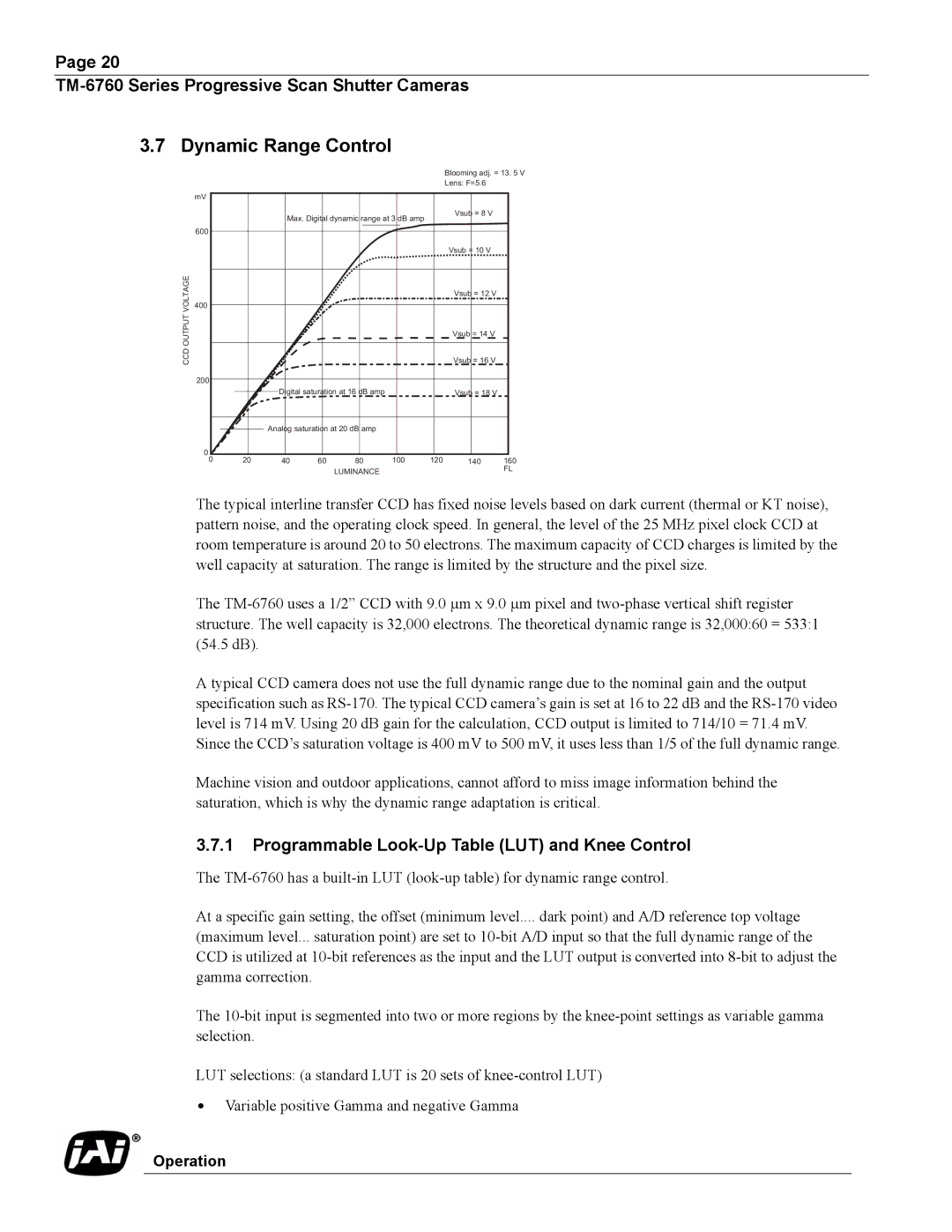
Page 20
TM-6760 Series Progressive Scan Shutter Cameras
3.7 Dynamic Range Control
Blooming adj. = 13. 5 V
Lens: F=5.6
mV
Max. Digital dynamic range at 3 dB amp
600
Vsub = 8 V
CCD OUTPUT VOLTAGE
Vsub = 10 V
Vsub = 12 V
400
Vsub = 14 V
Vsub = 16 V
200
|
|
|
|
| Digital saturation at 16 dB amp |
|
| Vsub = 18 V |
|
| ||
|
|
|
|
|
|
|
|
| ||||
|
|
|
|
|
|
|
|
|
|
| ||
0 |
|
|
| Analog saturation at 20 dB amp |
|
|
|
|
| |||
|
|
|
|
|
|
|
| |||||
|
|
|
|
|
|
|
|
|
|
|
| |
0 |
| 20 | 40 | 60 | 80 | 100 | 120 | 140 | 160 | |||
|
|
|
|
|
|
| LUMINANCE |
|
|
| FL | |
|
|
|
|
|
|
|
|
|
|
|
| |
The typical interline transfer CCD has fixed noise levels based on dark current (thermal or KT noise), pattern noise, and the operating clock speed. In general, the level of the 25 MHz pixel clock CCD at room temperature is around 20 to 50 electrons. The maximum capacity of CCD charges is limited by the well capacity at saturation. The range is limited by the structure and the pixel size.
The
A typical CCD camera does not use the full dynamic range due to the nominal gain and the output specification such as
Machine vision and outdoor applications, cannot afford to miss image information behind the saturation, which is why the dynamic range adaptation is critical.
3.7.1Programmable Look-Up Table (LUT) and Knee Control
The
At a specific gain setting, the offset (minimum level.... dark point) and A/D reference top voltage
(maximum level... saturation point) are set to
The
LUT selections: (a standard LUT is 20 sets of
•Variable positive Gamma and negative Gamma
Operation
